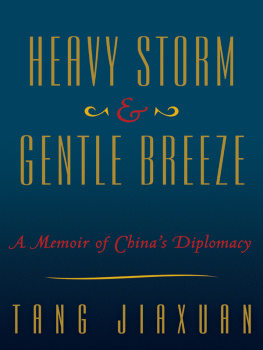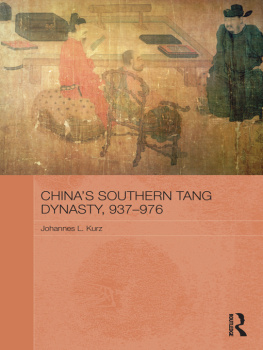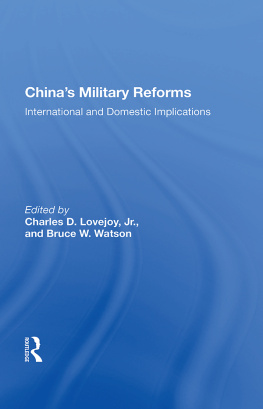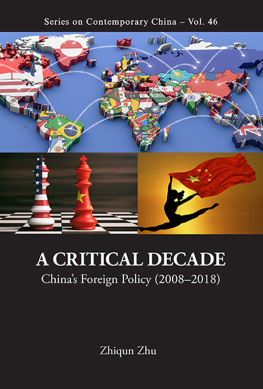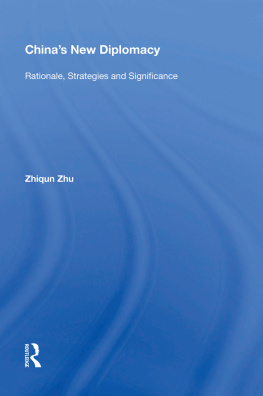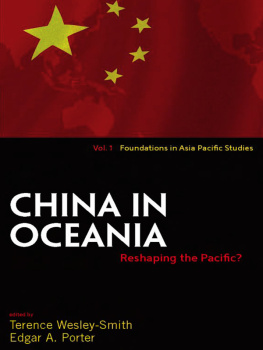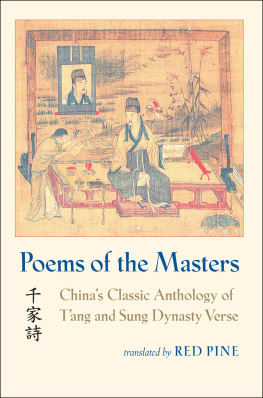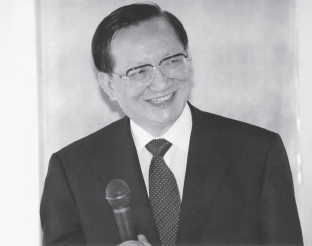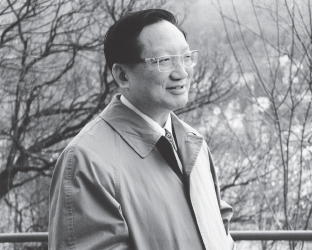I WAS DEEPLY HONORED TO be one of the first readers of Mr. Tang Jiaxuans book Heavy Storm and Gentle Breeze . I would like to extend my warm congratulations on its publication.
Mr. Tang is an esteemed leader on the diplomatic front who has had over forty years experience. His book covers a part of the major diplomatic events and state activities during the period from March 1998, when he became foreign minister, to March 2008, when he retired as state councilor.
During that decade, Chinas overall strength and international influence rose. China responded confidently to the vicissitudes of international situations and handled properly a series of major international events. Historic changes took place in Chinas relations with the rest of the world.
Chinas relations with major powers advanced. Despite the twists and turns caused by the bombing of the Chinese embassy in Yugoslavia, and the incident of collision over the South China Sea, China-US relations returned to the path of healthy and steady development and continuous progress. The China-Russia strategic cooperative partnership strengthened, and the two countries signed the Treaty of Good-Neighborliness and Friendly Cooperation. China and Japan broke the deadlock caused by Japanese leaders visits to the Yasukuni Shrine, and opened up a new mutually beneficial relationship. China established various forms of strategic partnership with the European Union, the United Kingdom, France, and Germany as well as reinforcing its cooperation with major emerging countries, including India, Brazil, South Africa, and Mexico. China pursues a policy of fostering friendship and partnership with neighboring countries and actively expanding regional cooperation. ASEAN+1, ASEAN+3, and the East Asia Summit were fruitful. The founding, in 2001, of the Shanghai Cooperation Organization (SCO) bore good fruits. The Beijing Summit of the China-Africa Cooperation Forum concluded successfully. The ChinaArab States Cooperation Forum was founded, and mutually beneficial cooperation between China and Latin American countries deepened. China played an active role in multilateral affairs, advocated peace, cooperation, and development, greatly contributing to the building of a harmonious world of lasting peace and common prosperity.
The splendid accomplishments in diplomatic work over the decade are attributable to the leadership of the Central Committee of the CPC and the State Council, the concerted efforts of relevant departments, and the firm support of the people nationwide. They also embodied the wisdom and energy of Mr. Tang Jiaxuan, foreign minister and state councilor in charge of foreign affairs.
In this book, Mr. Tang selects eleven representative events, and presents them with vivid narration and incisive analysis. The book is a skillful application of theory in practice. The patriotism shown in handling the bombing of the Chinese embassy in Yugoslavia, the diplomatic art of strict adherence to principles combined with strategic flexibility in facilitating win-win China-Russia and China-Vietnam boundary negotiations, the strong organization and coordination ability during the Beijing Summit of the China-Africa Cooperation Forum, the high sense of political responsibility in addressing the nuclear tests conducted by India and Pakistan, the strategic thinking in promoting the steady development of Chinas relations with major powers, and his style of telling truth from facts and keeping up with the timesall this constitutes a valuable treasure of our diplomacy. In a sense, the book is a true portrayal of Mr. Tangs diplomatic experience, as well as a valuable diplomatic document.
Mr. Tang has been a leader, a mentor, and a helpful friend. He is ready to listen to views from all. He is democratic and decisive. He is amicable and easy to approach. He is demanding and considerate. I have been deeply impressed by his leadership, diplomatic charisma, and great sense of responsibility. In early 2003, he visited New York four times in just over a month to attend the UN Security Council meetings, seeking a solution to the Iraq issue. Faced with complicated situations, he employed well-planned strategies and won praise for his prudent and pragmatic style. As ambassador to the United States at the time, I was deeply moved by his earnest devotion to the cause of world peace.
Writings are for conveying truth. Heavy Storm and Gentle Breeze, with its rich content and profound ideas, provides important guidance to the cause of diplomacy. Under the prevailing heavy storm in the international situation, we diplomats will benefit from the gentle breeze in Chinas diplomacy. The book will give us wisdom and strength, inspiring us to enrich Chinas diplomatic theory and practice, thus bringing new impetus to our work.
Yang Jiechi
September 27, 2009
I RETIRED AS A STATE councilor in March 2008 but, as a veteran diplomat, I am still concerned about and support Chinas diplomatic causes. Many colleagues suggested that I should write my recollections of the important events in my diplomatic career in order to record history, give advice, and impart knowledge. Some described it as a duty and obligation on my part to my country, to the cause of diplomacy, and to history.
Indeed, during the forty-plus years of my diplomatic career, particularly from March 1998, when I became foreign minister, to March 2008, when I retired as state councilor, complicated and profound changes took place in the international situation. By the beginning of the twenty-first century, major readjustments had emerged in international political and economic patterns, resulting in historic changes in Chinas relations with the rest of the world. Over this decade, under the correct leadership and direct guidance of the central authorities, Chinas diplomacy forged ahead with the times, transforming challenges into opportunities and opening up new prospects, thus achieving brilliant successes. During this period, there were indeed many events worth recording in Chinas diplomacy. Memories of these events linger in my heart. With the passage of time, I have gained an increasingly deep understanding of those events.
After thorough consideration, I decided to accept the suggestion to write and publish this book, because it is not an entirely personal matter of mine.
I have chosen eleven topics, all related to events significant to Chinas diplomacy over that decade. The book reflects not only the development of and changes in Chinas relations with major powers in the world, but also the dialogue and cooperation between China and other developing countries. Confucius said, Recalling the past helps understand the present. Therefore, I strive to review history from a realistic point of view. In this way, I try to reveal the basis of historical truths, and the intentions and thinking, pains and gains of decision makers and participants, and present to the readers a comprehensive account of the essence, national interests, and work results. I hope this book will have a practical reference value. Owing to limited space and the diplomatic sensitivity of certain issues, the events related in this book constitute only part of my diplomatic experiences. I believe readers will understand.

